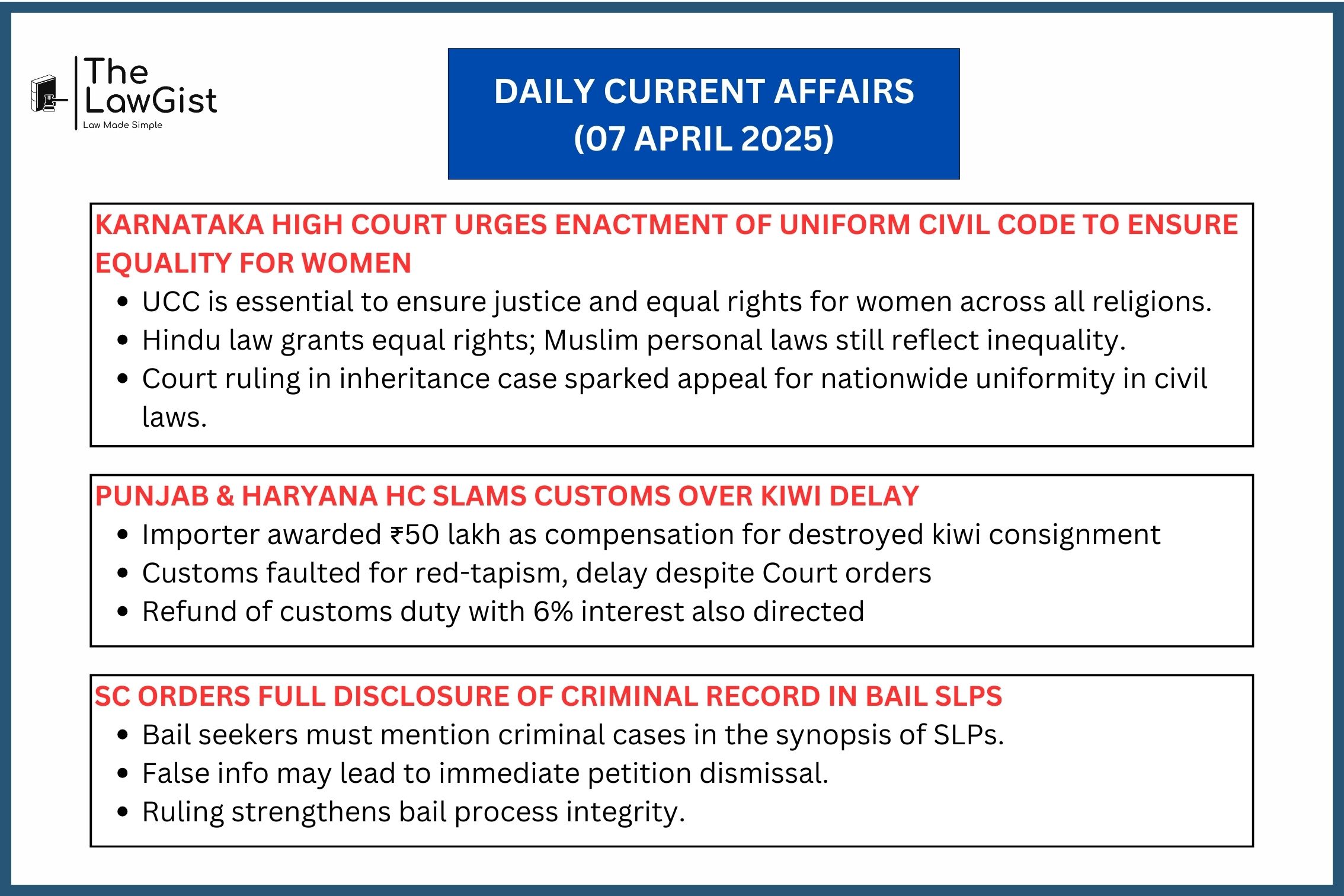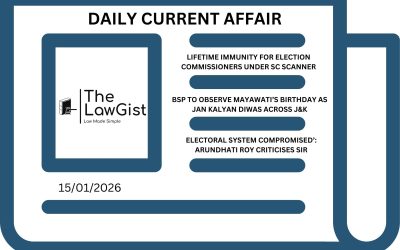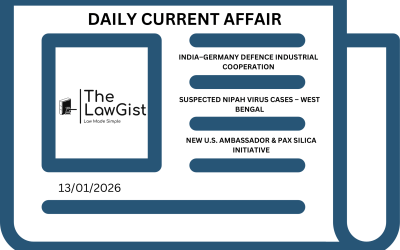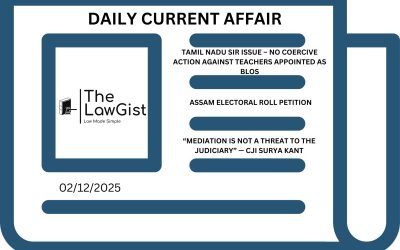
UCC push by Karnataka HC, ₹50 lakh relief for kiwi importer, and SC orders mandatory criminal history disclosure in bail SLPs.
DAILY CURRENT AFFAIRS (07 APRIL 2025)
KARNATAKA HIGH COURT URGES ENACTMENT OF UNIFORM CIVIL CODE TO ENSURE EQUALITY FOR WOMEN
Case Name: Samiulla Khan & Ors vs. Sirajuddin Macci & Ors (Partition Suit of Abdul Basheer Khan’s Estate)
The Karnataka High Court called on Parliament and States to enact a Uniform Civil Code, stating it would promote gender equality, uphold constitutional principles of dignity and fraternity, and address inequalities embedded in personal laws. The remarks were made during a property dispute involving inheritance under Mahomedan law.
Legal Provision
- Article 14, Constitution of India: Right to equality before the law.
- Article 44, Directive Principles: State shall endeavor to secure Uniform Civil Code for citizens.
- Hindu Succession Act, 1956: Grants equal rights to daughters in inheritance.
- Personal Laws: Differ by religion; Mahomedan law lacks gender parity in succession.
- Civil Procedure Code: Governs partition suits and succession claims in civil courts.
Source: Karnataka High Court
PUNJAB & HARYANA HC ORDERS ₹50 LAKH COMPENSATION TO IMPORTER OVER DELAYED KIWI FRUIT RELEASE
Case Name: M/s Prenda Creations Private Limited vs. Union of India and Others
The Punjab and Haryana High Court ordered the Customs Department to pay ₹50 lakh compensation and refund customs duty to Prenda Creations for delaying kiwi release, causing the destruction of 89,420 kg of fruit. The Court slammed bureaucratic red-tapism and stressed quick clearance of perishable imports to protect public interest.
Legal Provision
- Section 46, Customs Act: Requires importer to file Bill of Entry.
- Section 26A(3), Customs Act: Prohibits refund for expired perishable goods—held inapplicable here due to official delay.
- Judicial Observation: Red-tapism violated importer’s rights and harmed public access to quality goods.
- Court Directions: ₹50 lakh compensation, 6% interest on custom duty refund, accountability from erring officers.
Source: Punjab and Haryana High Court
ACCUSED SEEKING BAIL MUST DISCLOSE CRIMINAL ANTECEDENTS IN SLP SYNOPSIS: SUPREME COURT
Case Name: Munnesh vs. State of Uttar Pradesh
The Supreme Court mandates all bail petitioners disclose their criminal antecedents in the synopsis of Special Leave Petitions. False or incomplete disclosures may lead to dismissal. This move aims to curb misleading petitions and uphold judicial integrity, following repeated concealment of criminal history in bail-related SLPs.
Legal Provision
-
- Section 438 CrPC – Anticipatory Bail
- Section 439 CrPC – Regular Bail
- Section 482 & 483 BNSS – Inherent Powers of Courts (post-CrPC transition)
- Article 136 – Special Leave Petition
- Orders dated October 13 & 19, 2023 – Precedent on full disclosure directives
Source: Supreme Court of India
Also Read: DAILY CURRENT AFFAIRS (05 APRIL 2025)







